
/
Dogodki
/
Konference
School Reforms in the Pre-modern Period From the Perspective of Justice and Discourse Analysis on the Implementation of the “Teutsche Schule” in Württemberg
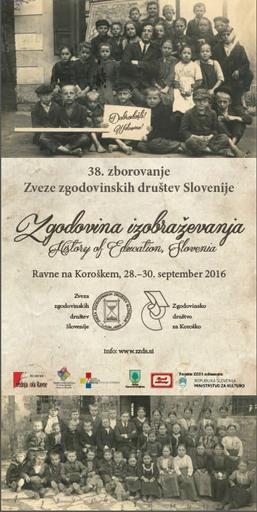
Avtor(ji):Thomas Wiedenhorn
Leto:2016
Založnik(i):Zveza zgodovinskih društev Slovenije, Ljubljana, Inštitut za novejšo zgodovino, Ljubljana
Jezik(i):angleščina
Vrst(e) gradiva:video
Ključne besede:implementacija, celovita šola, diskurz pravičnosti, reforma šolstva, implementation, comprehensive school, discourse of justice, school reform, pre-modern period
Avtorske pravice: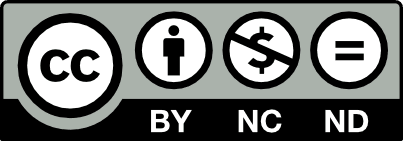

To delo avtorja Thomas Wiedenhorn je ponujeno pod Creative Commons Priznanje avtorstva-Nekomercialno-Brez predelav 4.0 Mednarodna
Datoteke (5)
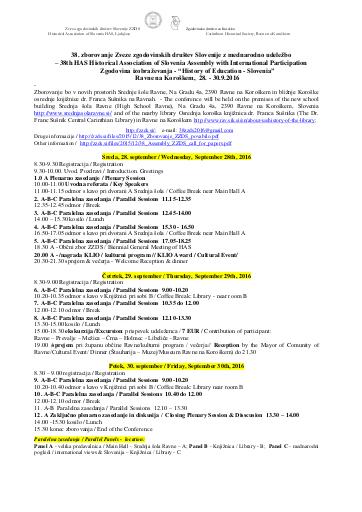
Ime:program-38-zborovanja-ZZDS.pdf
Velikost:313.04KB
Format:application/pdf
Stalna povezava:https://hdl.handle.net/11686/file22602
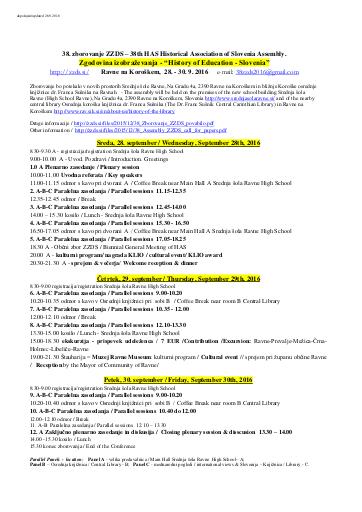
Ime:program-38-zborovanja-ZZDS-SLO-ANG.pdf
Velikost:303.57KB
Format:application/pdf
Stalna povezava:https://hdl.handle.net/11686/file22603
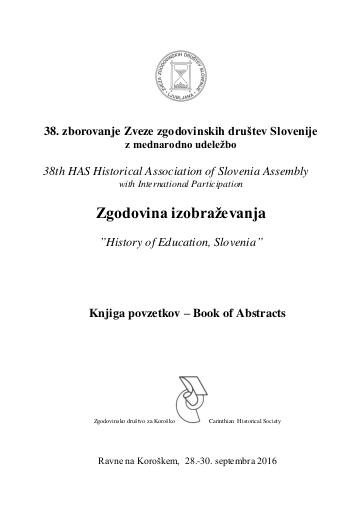
Ime:Knjiga-povzetkov–book-of-abstracts.pdf
Velikost:895.33KB
Format:application/pdf
Stalna povezava:https://hdl.handle.net/11686/file22604
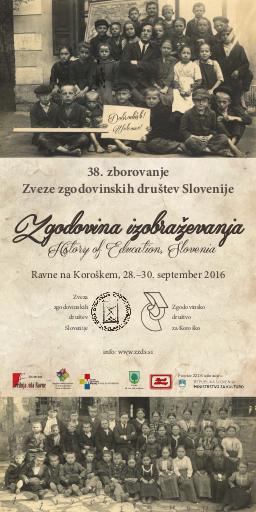
Ime:Plakat-38-zborovanja-ZZDS.pdf
Velikost:1.36MB
Format:application/pdf
Stalna povezava:https://hdl.handle.net/11686/file22605
Opis
In the field of research on education and schools, the 16th century is described as the era of school regulations. During the Reformation, many European countries established groundbreaking educational concepts. One major starting point for the implementation of institutionalised public education in Württemberg was the “General church and school ordinance” (cf. Reyscher 1834). Implementation of the “Teutsche Schule” as a standardised, comprehensive school can also be understood as a discourse which passed on ideas of justice. This contribution raises the question of the structural, symbolic and subject elements of the immanent discourse on justice as was manifested in the school regulations of Württemberg from the time of the Reformation right up to the end of Pietism. To do this, three relevant sets of school regulations are analysed in terms of the “powerstrategic and domination-strategic functions of the (practical) solution to social problems presented discursively” (Caborn, et.al. 2013, p. 24). Three source texts on the implementation of public education in Württemberg form the basis for the discourse analysis: 1. regulations concerning “Teutsche Schulen” in the Große Kirchenordnung (1559), 2. Chapter XXI “Von den Schulen und Schulmeistern” in Cynosura oeconomiae ecclesiaticae Wirtembergicae (1687) and 3. the revised school regulations for German schools (1729). The discourse to be analysed refers back to temporary practices of preceding eras, which themselves in turn are reproduced by specifically conditional practices (cf. Bührmann; Schneider 2008). Does this mean that every type of school has its own order of truth and its own general policy of truth (cf. Foucault 2003) which only temporarily serve as true discourses?
Metapodatki (11)
- identifikatorhttps://hdl.handle.net/11686/37376
- naslov
- School Reforms in the Pre-modern Period From the Perspective of Justice and Discourse Analysis on the Implementation of the “Teutsche Schule” in Württemberg
- avtor
- Thomas Wiedenhorn
- predmet
- implementacija
- celovita šola
- diskurz pravičnosti
- reforma šolstva
- implementation
- comprehensive school
- discourse of justice
- school reform
- pre-modern period
- opis
- In the field of research on education and schools, the 16th century is described as the era of school regulations. During the Reformation, many European countries established groundbreaking educational concepts. One major starting point for the implementation of institutionalised public education in Württemberg was the “General church and school ordinance” (cf. Reyscher 1834). Implementation of the “Teutsche Schule” as a standardised, comprehensive school can also be understood as a discourse which passed on ideas of justice. This contribution raises the question of the structural, symbolic and subject elements of the immanent discourse on justice as was manifested in the school regulations of Württemberg from the time of the Reformation right up to the end of Pietism. To do this, three relevant sets of school regulations are analysed in terms of the “powerstrategic and domination-strategic functions of the (practical) solution to social problems presented discursively” (Caborn, et.al. 2013, p. 24). Three source texts on the implementation of public education in Württemberg form the basis for the discourse analysis: 1. regulations concerning “Teutsche Schulen” in the Große Kirchenordnung (1559), 2. Chapter XXI “Von den Schulen und Schulmeistern” in Cynosura oeconomiae ecclesiaticae Wirtembergicae (1687) and 3. the revised school regulations for German schools (1729). The discourse to be analysed refers back to temporary practices of preceding eras, which themselves in turn are reproduced by specifically conditional practices (cf. Bührmann; Schneider 2008). Does this mean that every type of school has its own order of truth and its own general policy of truth (cf. Foucault 2003) which only temporarily serve as true discourses?
- založnik
- Zveza zgodovinskih društev Slovenije
- Inštitut za novejšo zgodovino
- datum
- 2016
- 28. 09. 2016
- tip
- video
- jezik
- Angleščina
- jeDelOd
- pravice
- licenca: ccByNcNd